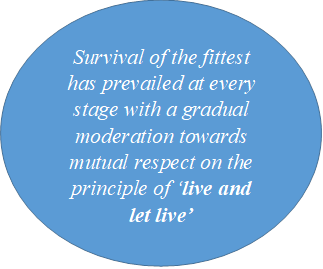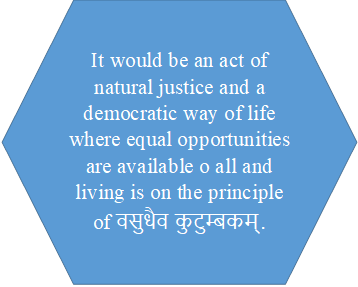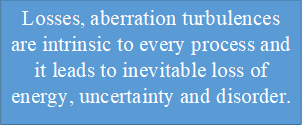 Coordinator’s View
Coordinator’s View
Economics of Self-Help- Societal Change?
The scare of Covid-19 during 2020 has rattled human civilization on the globe. Need of social distancing, and stay safe at home dominated personal, social, professional, economic and political compulsions. This posed upon every individual a necessity to survive through this crisis, come what may, by resorting to best possible options. One of the options was Self-help, it called upon to meet personal needs at personal level, which was otherwise delegated to domestic or commercial help. This situation inflicted dangers of unemployment among downtrodden section of society whose occupation was confined to be helper. This problem has multiple dimensions viz. cultural, sociological, economic and political. The topic is quite complex and elaborate justifying need of extensive researches and multiple books on its various facets. Yet this article, based on realization on self-help during this pandemic, has triggered a thought process to intrinsically relate it to the welfare of the civilization. It is being floated for interaction among elites.
Social evolution at macro scale is viewed in four stages (a) pre-agricultural, (b) agricultural, (c) industrial and (d) information and communication. In pre-agricultural stage civilization was of hunters and confined to small herds. Agricultural stage led to people getting organized with social dependence on ability to work, organize and trade their surplus to cater to their deficiencies. Industrial stage added a new dimension to commerce so as to derive the economic advantage of their production capabilities. The present stage is of information and communication which is tending to make the whole world a monolithic civilization. This stage has set in a process of integration of human civilization where pleasure or pain, suffering or surplus in any small part of the globe create a reverberation across the globe.
 These
transformations from economic perspective have political dimensions and has
undergone changes with changing scenario. In First Stage society was
disintegrated with each one surviving for self, it was similar to that of wild
life. In Stage Two it grew into feudal system which later emerged into
monarchy and kingdoms; they were fighting against each other for territorial, economic or
religious dominance. In Stage Three working class got organized and became
demanding of their rights and their share in proceedings of an enterprise. In
the present stage, the Stage four, we are experiencing growing consciousness for
democracy. Yet, survival of the fittest has prevailed at every stage with a
gradual moderation towards mutual respect on the principle of ‘live and let
live’.
These
transformations from economic perspective have political dimensions and has
undergone changes with changing scenario. In First Stage society was
disintegrated with each one surviving for self, it was similar to that of wild
life. In Stage Two it grew into feudal system which later emerged into
monarchy and kingdoms; they were fighting against each other for territorial, economic or
religious dominance. In Stage Three working class got organized and became
demanding of their rights and their share in proceedings of an enterprise. In
the present stage, the Stage four, we are experiencing growing consciousness for
democracy. Yet, survival of the fittest has prevailed at every stage with a
gradual moderation towards mutual respect on the principle of ‘live and let
live’.
Ever since societies got organized, in Stage two, serving class was kept engaged in their support roles of serving to their upper class. This hardly changed their socio-economic profile. This scenario alienated them away from opportunities of growth. Best of the life and the growth opportunities were confined to the upper class. Man despite being a social animal is gifted with a unique ability to think, choose and act or react. It is true among people in call the classes of society. Thus, any kind of exploitation anywhere or wherever, though tolerated as an initial compulsion, creates restlessness and turbulence among the sufferers. This, however, beyond tolerable limit erupts in the form of a rebellion. Stage three provides best possible opportunity to working class to organize to organize themselves. Its manifestation in different parts of the world took different names - somewhere, socialism, somewhere communism or capitalism. As a result, capitalist societies started responding to the need of the change by rewarding equitable treatment and compensation to the working class. Those, who did not have surplus to meet the expectations of the working class resorted to self-help and manage their time on profession and personal needs. This is clearly evident from the fact that people who go to developed countries manage there on self-help, but when they are back home they stretch out to enjoy luxury of engaging helps.
Self-help during recent pandemic created lot of turbulence, joblessness and a burden on the state to look after people deprived of their earning. But, one unprecedented happening was that the upper class, which was not used to self-help, got into action. In domestic matters, while their privilege to engage domestic help took a back seat; their ingenuity found an expression in their daily life. They evolved better way of performing domestic jobs, use of new gadgets and better practices to suit their life style. At my own home job of cooking, housekeeping, and utensil cleaning in descending order of their skill received attention due to their inevitability. In Indian families cooking is a passionate activity and, therefore, absence of domestic help has been replaced with the increase in use of kitchen gadgets. But, housekeeping and utensil cleaning has drifted to optimization with the better processes and use of appliances as well as disposables. Earlier, these options were thought of only in the event of gatherings or in the event of extraordinary situations, and not in daily practice. A close consideration of the scenario reveals that riders that prohibited this kind of change in earlier times were dominated by a consideration that recurring cost of consumables is more than the recurring expenses on engaging domestic help. This is an inicator of poverty prevalent in our country. Here, it is important to consider that productions and supply of such consumables and appliances require better skills and capabilities. Thus, a proper transformation into self-help would create newer opportunities of livelihood for those serving as domestic help. This new scenario evolves a new kind of employment and in turn a better economic scenario as a whole. Yet, denying economics of self-help is a blatant disregard to human sensitivity and necessity of change in profile of people engaged in help. This of socio-economic transformation is our collective responsibility. Is it not true that any obstruction to such transformation is a contradiction to the periodical growth in profile and compensation that each one of us look upon rightfully?
It is a fact that this drift from domestic-help to self-help is a necessity. This drift calls upon our time otherwise utilized either in professional engagement or to to enjoy luxury out of affluence. As a consequence of the drift there will be creation of growth opportunities at every level in the hierarchy of the position occupied by the person. But, it does not happen automatically specially for unskilled persons engaged in domestic help. Judiciously, these serving class also have a right to survive. Therefore, such a shift has to be made thoughtfully and in a planned manner. It is only the compulsion of survival in the pandemic that has driven such a change and we elites have to sustain and support it. Supporting the working class deprived of their livelihood by continual financial help will convert them into economic-parasites.
 A
thought on management of transition prompts to find some time to think and act
so that the down trodden and those engaged in lower level of economic
activities become a part of the main stream. It is an act of natural justice
and a democratic way of life where equal opportunities are available to all,
and living, more particularly of elites who are capable of making a difference,
is on the principle of वसुधैव कुटुम्बकम्. This can be accomplished by sharing better domestic
practices evolved by us to the serving class. It will help some of them to move
on to more affluent families who can facilitate these practices to domestic
help with an appropriate compensation. Simultaneously, they can create
opportunities of production and supply-chain of accessories needed to sustain
self-help through their network.
A
thought on management of transition prompts to find some time to think and act
so that the down trodden and those engaged in lower level of economic
activities become a part of the main stream. It is an act of natural justice
and a democratic way of life where equal opportunities are available to all,
and living, more particularly of elites who are capable of making a difference,
is on the principle of वसुधैव कुटुम्बकम्. This can be accomplished by sharing better domestic
practices evolved by us to the serving class. It will help some of them to move
on to more affluent families who can facilitate these practices to domestic
help with an appropriate compensation. Simultaneously, they can create
opportunities of production and supply-chain of accessories needed to sustain
self-help through their network.
Wise are those who respond to the need of time before they are compelled to do so. And whenever this does not happen a revolt is a natural outcome. Each revolt has consequential effects that have to be borne by the society as a whole. This is beautifully articulated in a piece of literature, a short story, Barber’s Trade Union by Mulk Raj Anand. Quality and latency of its cascading effects are based on the leadership of the revolt. A genuine leadership creates a positive change, whereas leadership with ulterior motives causes devastating consequences. It is, therefore, all the more essential to proact thoughtfully for the larger good, and sooner the better it is.
A rational thinking, not out of fear, inclines to think that self-help is righteousness way to live with the deserving regard to dignity of labour, and with an orientation towards humanism and socio-economic judiciousness. An honest introspection is needed to explore - how much of our role cannot be performed by any other? Are others unable to perform our role because of their incompetence or non-availability of opportunities to grow up to that? Have we not restricted dissemination of our knowhow to preserve self-indispensability? Are these questions irrelevant to elite class? Is it not that more a person, in general, rises in his professional profile, more he becomes commercial and possessive? It has been discussed in Professionalism Vs Commercialism.
An introspection into these questions has been awakening. It has led to a realization that measure of competence of a person is in number of torch bearers, successors, that he creates. More are the successors outside the family greater is the degree of competence and professionalism. Indispensability, in general, is always fabricated and it is not a measure of competence. Exceptions are always there, but these exceptions do not make a rule. Indispensability is against the law of nature. A successful person is the one who creates a second line more competent than him and he voluntarily relinquishes his role upon these successors. But, such a competent person does not stop at that. He rather explores newer opportunities of engagement and augmenting the ascending ladder of descendants. It is a spiritual way of life where age and stage, to be able to do that, is considered to be a God gifted opportunity. This is precisely the outcome of the thought process on the subject matter.
 Science is definition of nature and it is never
ending discovery. Moreover, life is an integral part of nature. Therefore,
pursuit of science and its correlation to different facets of life is very close
to spirituality. At this point it is considered relevant to dwell on principle
of Entropy. It is a metaphor of Second Law of Thermodynamics, a subject
matter of physics. The basic premise in Entropy is that all the processes
occurring in nature are irreversible, whereas reversible process is an
idealization of a real process. Losses, aberration turbulences are intrinsic to
every process and it leads to inevitable loss of energy, and increase in uncertainty
and disorder. As a consequence of it, hundred percent efficiency cannot be
achieved. In this context, all other disciplines of knowledge focus on
enhancement in quality of life to the extent possible. It is thrilling to know
that concept of entropy has found application in many branches of knowledge viz.
economics, sociology, psychology, biology, political science etc. These
disciplines are part of humanities and outside the framework of physics.
Science is definition of nature and it is never
ending discovery. Moreover, life is an integral part of nature. Therefore,
pursuit of science and its correlation to different facets of life is very close
to spirituality. At this point it is considered relevant to dwell on principle
of Entropy. It is a metaphor of Second Law of Thermodynamics, a subject
matter of physics. The basic premise in Entropy is that all the processes
occurring in nature are irreversible, whereas reversible process is an
idealization of a real process. Losses, aberration turbulences are intrinsic to
every process and it leads to inevitable loss of energy, and increase in uncertainty
and disorder. As a consequence of it, hundred percent efficiency cannot be
achieved. In this context, all other disciplines of knowledge focus on
enhancement in quality of life to the extent possible. It is thrilling to know
that concept of entropy has found application in many branches of knowledge viz.
economics, sociology, psychology, biology, political science etc. These
disciplines are part of humanities and outside the framework of physics.
In essence entropy is non-conservative property of any process and it leads to increase in uncertainty in progression. Though every system and process is intended and designed to function deterministically with desired certainty of results, yet cumulative losses in them increase uncertainty, chaos and disorder. This continues until the system remains resilient to it. But, in the event of any breach of limits of resilience of the system and the people affected by it an eruption, a revolt, occurs. It forces upon the society an evolution of a new system, process and socio-economic order; this cycle continues.
Conclusions: A person is at its best as long as he complements the growth of others, more importantly the less privileged ones. This is true to self-existence in all times, and self-help is one of the ways towards it. Self-help is within realm of each one of us. Self-help when aimed at conserving resources is miserliness which is against the basic tenets of economics. This is true both in microeconomics and macro-economics. But, taking forward the self-help to disseminate opportunities of growth to the deprived ones and also support it, is the real economic perspective and deserves consideration of every elite person.
—00—